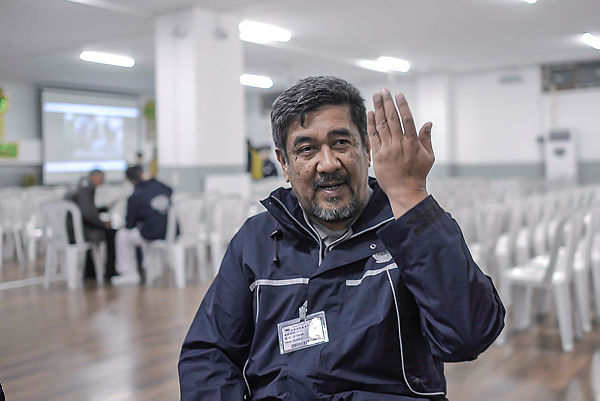ISTANBUL: It was about four years ago, during the major flood that devastated the east coast of Malaysia, that Dr Zazali Mohd Yatim, 57, decided to become a member and volunteer for the Tzu Chi Foundation.
The family medicine specialist would later discover that he is only one of less than one percent of Malay-Muslims in the Malaysian chapter of the humanitarian, non-governmental organisation.
Zazali recalled how he was about to clean up a surau in Temerloh, Pahang, following the floods when he came across what he described as “Chinese-looking volunteers” wearing Tzu Chi T-shirts, thinking they were Japanese volunteers.
He researched the group and found that Tzu Chi is a Taiwanese international human aid organisation with more than 10 million members across the globe, including Malaysia.
“It really impressed me that this non-Muslim NGO was helping to clean a surau, and had advanced equipment,” he told Malaysian reporters who were visiting Syrian refugees here recently.
“I did my homework and found they have a clinic in Batu Caves for Rohingya refugees, so I visited them.
“I then started visiting and helping out at the clinic every month, and would later become more involved in the organisation.”
Zazali said he was often asked about his decision to join Tzu Chi when there were other Muslim NGOs in the country, and his answer was: “Why not?”
He explained that what was being practised in Tzu Chi was in fact similar to what is being taught in many other religions – to show compassion, be disciplined and have respect for others.
“I bank on the similarities Tzu Chi has with Islam, rather than the differences. The problem with our people is even if we have 99 similarities, we would look for that one difference, and fight on that.”
But it has not been easy for Zazali, who said that being the minority, he has to project himself as a good, true Muslim to his other non-Muslim friends in Tzu Chi.
“If there is another Muslim member who skipped his prayers and don’t abide by Islamic teachings, I have to defend him and explain why,” he said.
Zazali also explained how Tzu Chi volunteers would have to use their own money for any humanitarian missions, including for flight tickets and accommodation, and that the main funding would often come from small collections, even from the poor.
“Our aim is to teach the rich to help the poor and the poor to help themselves, and that giving is not the privilege of the rich, but of the sincere,” he said.
Zazali is currently undergoing a two-year training programme to become a Tzu Chi commissioner.










